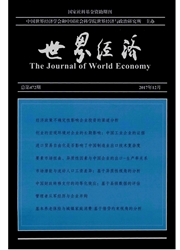

 中文摘要:
中文摘要:
本文基于中国276个地级及以上城市的语言多样性与对外贸易数据集,采用普通最小二乘法、随机效应模型及工具变量法,首次对语言多样性如何影响地区对外开放进行了考察。结果表明:一个城市平均每增加一种方言,对外开放程度将降低2—2.4个百分点;修正的语言多样性指数每增加一个标准差,对外开放程度将降低约1.5个百分点;采用山脉指数作为工具变量控制内生性问题后,上述抑制效应依然稳健;这一抑制效应主要通过外贸依存度予以表现,而非外资依存度;较高的语言多样性会阻碍人力资本积累,导致地区呈低人力资本水平状态,从而抑制对外开放。加强普通话推广,有助于提高对外开放程度,推动区域经济发展。
 英文摘要:
英文摘要:
Based on the language diversity and foreign trade data set of China's 276 prefecture-level (or above administrative level) cities, using OLS, random model and instrumental variable methods, this paper empirically investigates how the linguistic diversity affects the regional openness for the first time. The results show that on average, every one increasing dialect can reduce openness degree by 2-2. 4 percent. If the modified language diversity index increases by one standard deviation, the openness degree will decrease by approximately 1.5 percent. Such a mitigation effect is robust after the introduction of the mountains index as an instrumental variable of linguistic diversity to control the endogenous problem. Also, such a mitigation effect is mainly reflected by the degree of dependence on foreign trade, but not the degree of dependence on foreign investment. The linguistic diversity restrains regional openness mainly by impeding the accumulation of human capital and leading to the disparity of human capital among different regions. Therefore, we suggest that strengthening the popularization of mandarin and promoting the equaliza- tion of elementary education among regions are beneficial to enhance regional openness and economic devel- opment.
 同期刊论文项目
同期刊论文项目
 同项目期刊论文
同项目期刊论文
 期刊信息
期刊信息
